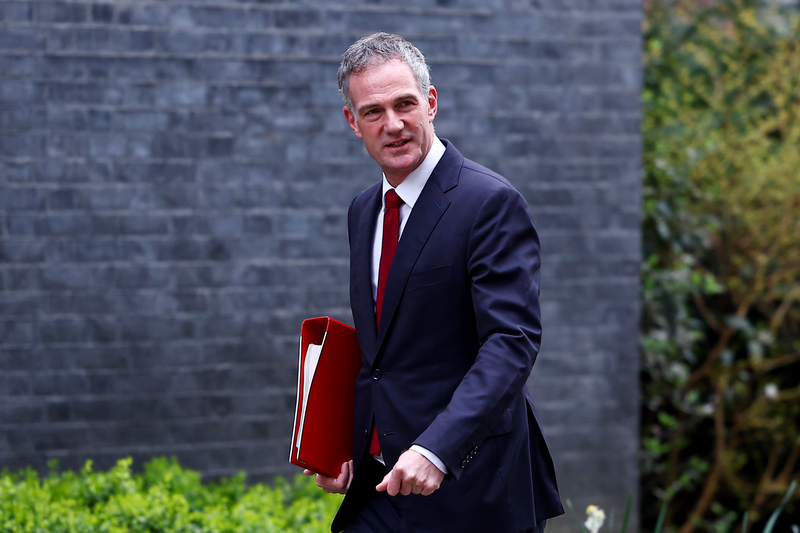The FCA has proposed a new approach to publicise enforcement investigations. This change to its enforcement strategy was announced by Therese Chambers, Co-Executive Director, Enforcement and Market Oversight, FCA at the Market Abuse Summit.
“The first rule of enforcement club is that you do in fact talk about enforcement club,” said Chambers, stressing the need for increased transparency.
As part of its new approach the FCA has started a consultation on plans to be more transparent when an enforcement investigation is opened. Under these proposals the FCA will publish updates on investigations as appropriate and be open about when cases have been closed with no enforcement outcome.
The moves are a step change from the current process where investigations are only announced in very limited circumstances.
The announcement of an investigation does not mean that the FCA has decided whether there has been misconduct or breaches of its requirements. Investigations into individuals will be different and the FCA will not usually announce these types of investigations.
What is in the ‘public interest’?
The FCA proposes to publicly announce that it has opened an enforcement investigation, including the identity of the subject of the investigation, and publishing updates on the investigation, if it considers that it is in the public interest to do so.
Any decision to announce an investigation would be taken on a case-by-case basis and depend on a variety of factors which will indicate whether to do so is in the public interest.
An announcement or update will be considered to be in the public interest when there is the likelihood it will:
- enable the interests of potentially affected customers, or consumers or investors more generally, to be protected;
- help the FCA’s investigation, for example by encouraging potential witnesses or whistleblowers to come forward;
- address public concern or speculation, including by correcting information already in the public domain;
- provide reassurance that the FCA is taking appropriate action;
- deter future breaches of FCA’s rules or other requirements or prohibitions that the FCA is responsible for enforcing; or
- otherwise advance one or more of the FCA’s statutory objectives, including protecting and enhancing the integrity of the UK financial system.
What is not in the public interest?
The FCA has proposed a set of factors which it considers indicate that an announcement or update may not be in the public interest, specifically if it is likely to have an adverse impact on:
- the conduct of the FCA’s investigation or an investigation by another regulatory body or law enforcement agency;
- the interests of consumers; or
- the stability of the UK financial system or the FCA’s ability to otherwise carry out its statutory functions.
The FCA says it is committed to carrying out enforcement cases more quickly to increase the deterrent effect of its enforcement actions on the market. In the future, for maximum effect, the FCA will focus on a streamlined portfolio of cases aligned to its strategic priorities. The FCA will also be quicker to close those cases where no outcome is achievable.
Transparency
The FCA says that FSMA does not impose any specific restriction on it publishing the fact that it is conducting an investigation.
The FCA’s proposed approach to not normally announce an investigation into a named individual, unless it is in the public interest and lawful, takes account of legal restrictions. In particular, the UK GDPR generally prohibits processing personal data unless there is a lawful reason for it.
The FCA said it considers the proposed approach is consistent with the approaches taken publicly by a number of other bodies. These include the Competition and Markets Authority, the Office of Communications and the Office of Gas and Electricity Markets and, outside the UK, the Monetary Authority of Singapore.
The new approach is the subject of formal consultation, with responses due by April 16, 2024, using the FCA’s online response form.
Industry comment
GRIP asked industry commentators for their views to further debate and offer considerations for stakeholders when considering their response to the FCA’s consultation.
Sam Tyfield, co-head of the Blockchain & Digital Assets at Shoosmiths said, the FCA would be wise to remember:
- its obligations under s348 FSMA on “restrictions on disclosure of confidential information” before issuing any early PRs;
- the likelihood that anything a PR says may – at some point in the future – be demonstrated not to have been factually correct;
- unless there are any actual facts contained in the PR, then “insinuation”, “nods-and-winks” and “nudges” carry with them their own problems.
Without either facts or wording leaving (too) much to the imagination, he asked what the point of an early PR was. It will need to be so caveated, footnoted, conditional as to render it no more than a tool to allow a regulator to give vent to frustration, he added.
From a practical perspective, he said:
- Regulated firms will need to check their contractual positions viz. “events of default” with third parties. It is possible that some such provisions can be read or are phrased in a way which would put a firm under investigation in default of an agreement (with material adverse consequences for it).
- Firms which have (group companies with) primary market obligations are going to have a massive issue as regards RSS announcements.
And he said that what concerns most people is that this exercise is not about regulatory consistency and transparency, it is about encouraging firms to accept a warning or enforcement notice quickly and without demur. “What was it that Therese Chambers said in her maiden speech about lawyers?” he asked. “Oh yes – ‘You can use your skills to block an inquiry, to claim privilege for every piece of paper and generally get in our way but what is that going to achieve?’
Gavin Stewart, independent commentator on financial regulation, said: “As others observe, this looks like a major shift for the FCA and will obviously trigger a series of reactions from firms under investigation, some of which we might predict … Hopefully the regulator will have prepared accordingly.
“To have any chance of success, this shift will need to be matched internally by changes in processes etc, involving not just Enforcement but (as a minimum), Legal, Comms, and Supervision. The new transparency will shine a light in ways they are largely unused to, and they will need to have thought ahead. This is presumably one of the differences with the SEC – which is used to operating like this.
“I worry in particular about the (newish) relationship between Enforcement and Legal, the potential for FCA Comms to over-claim, and Supervision’s capacity to deal with any fallout. Finally, the FCA will hopefully also have thought through the implications for s348 and the market impact of RSS announcements that Sam Tyfield highlights.
“Firms may become more resistant to providing information and there could well be sharp movements in share prices of firms being investigated. None of this has to be insurmountable but neither is it remotely easy … “












